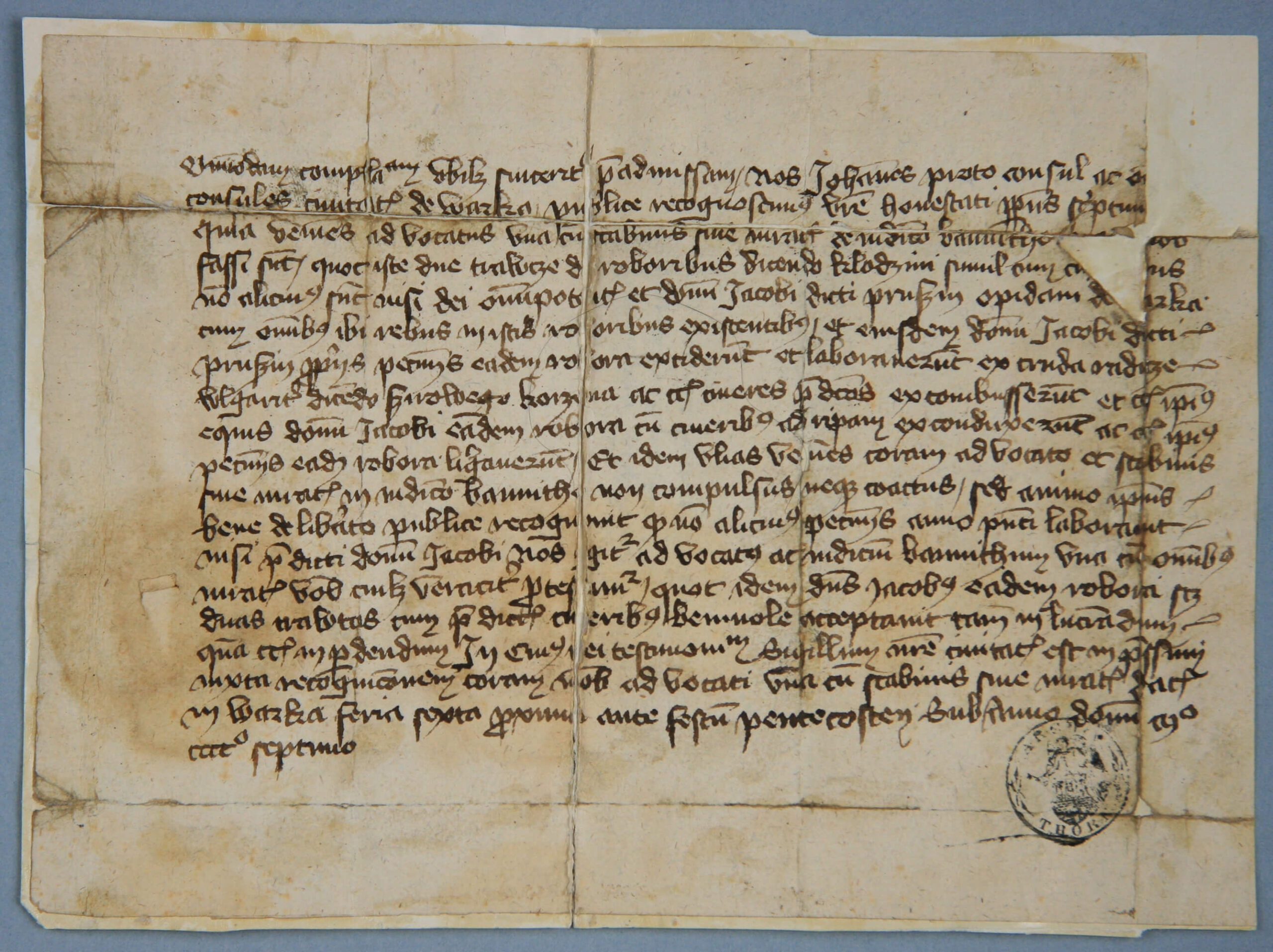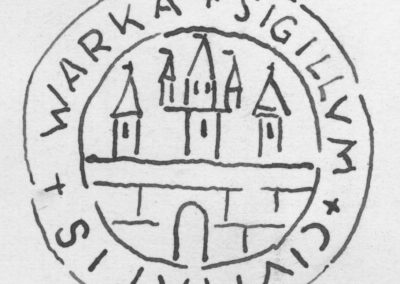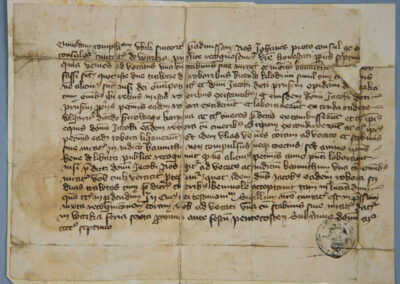
x
Warka local government before 1918
Warka’s local government has a long and rich history. Sources say that in 1375, Warka had a town council (rada miejska), consuls (konsulowie), and councilors (rajcy). They were headed by an official named Piotr. The town council represented the local community, and adjudicated matters important to the residents. The National Archives in Toruń have a document dated May 13, 1407, in which “councilor Jan ‘Proto’ and Warka town council attest to the fact that two rafts along with ashes (old Polish for charcoal) belong to Jakub called ‘Pruszin’, a Warka resident.” Naturally, local government officials decided on the financial policy of the community. In the 16th and 17th centuries, the town’s sources of income included fees and taxes connected with using bridges, roads, marketplaces, and county fairs. One can say that the Warka local government had a small treasure to manage, not only in form of its people.
In the 17th and 18th centuries, Poland was plagued by wars, which did not bypass Warka. As a consequence, they limited the possibilities of the local government. However, it did not stop them from putting forward admirable proposals, despite the obvious crisis. One such initiative was noted in 1791. The town’s mayor pleaded with a Police Commission to let him sell an empty plot in the town square, so that the town could afford to send three hundred zlotys to a student from Warka, who was studying at the university in Kraków! Three years later, the town hall witnessed a remarkable event. Residents from Warka and its environs came there to express their desire to join the Kosciuszko Uprising.
In the late 18th century, Poland faced a series of partitions. The third one divided the Commonwealth into the Austrian, Prussian, and Russian zones, effectively eliminating Poland from world maps for the next 123 years. The administration of the annexing powers had a significant influence over the institution of the local government. Warka was first annexed to Prussia, and later the Tsarist Russia. Initially, Poles would still hold high offices in town. Mayor Franciszek Kostecki was one example. However, with time, the forced cultural assimilation called Russification was beginning to be felt. It was mirrored in the appointing of local government officials. “Mayors, mainly Russians, were chosen from a group of people with little education. When they took the office, they were mainly concerned with building their own fortune. They came with the intention, as they put it, ‘nazhivat dengi’ (Russian for ‘earn money’). “And so would Warka continue to fall under their rule” wrote a local history enthusiast Fr. Marceli Ciemniewski in his book “The History of the Town of Warka” (Dzieje miasta Warki).
In 1914, World War I broke out. The powers who had annexed Poland over a century earlier now stood on opposite sides of the battlefield. As early as the following year, military actions brought a change in Warka’s occupation forces, which now changed to German. Changes in the local government followed swiftly. After German armed forces made their way into the town, Karol Dyr was appointed mayor. His successors were a Silesian named Chodyński, who had a weak command of Polish, and Wermsing, who did not speak Polish at all. However, the German influence over Warka local government did not last long. In November 1918, World War I came to an end. The local government underwent yet another transformation.


